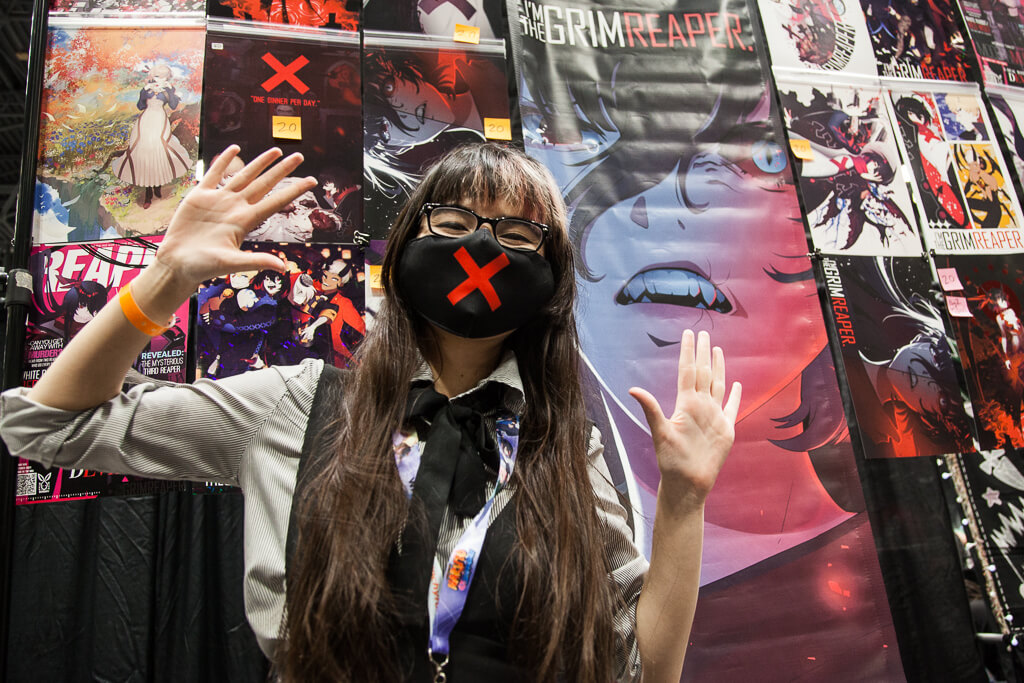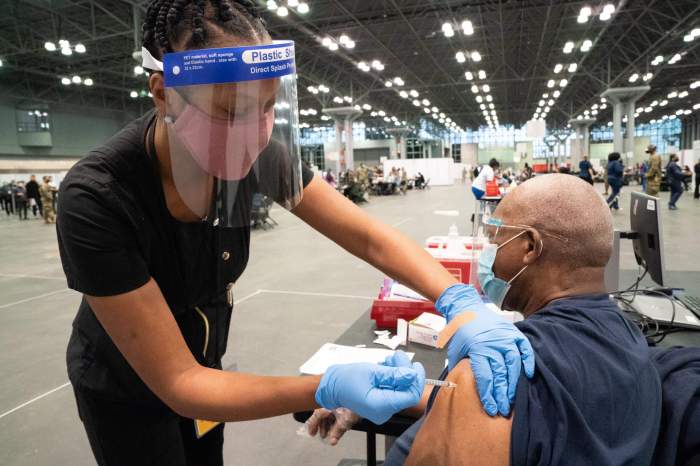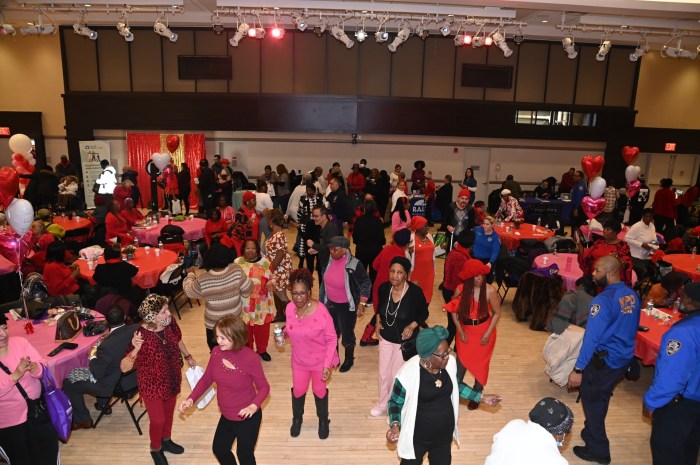Having grown in numbers during the pandemic, New York City’s otakus, a slang word for rabid fans of Japanese animation and comics, descended on the Javits Center over the weekend for a convention that reified the rising popularity of the genre.
Eager fans wrapped around the convention center Saturday morning donning mech suits, kimonos and animal ear costume to attend Anime NYC, a sold-out three-day anime gathering, sponsored by Crunchyroll, a company that claims the mantle of the world’s largest anime streaming platform.
“Something happened during the pandemic — I’m not sure what it was — but anime just took off. It was always popular among niche crowds, but this is sold out every single day. That’s wild!” said William Champion, a fan who had fashioned a Bain-like black gas mask to dress as All for One, an unsettling villain from a popular anime superhero series “My Hero Academia.”
Many fans told amNY that they were attending an anime convention, or con for short, for the first time after being inspired by the rising popularity and mainstream cultural acceptance of their preferred medium through its proliferation in the age of streaming.
The pandemic provided fans a lot of time on their hands to design elaborate cosplays, a word and concept for handmade costume-making that originated in Japan in the 1980s. The Javits lobby thrummed with fans who came to mingle and showcase their costumes, which often involved fabricating complicated accessories like chainsaw hands, plasticine tentacles or customized suits of armor.
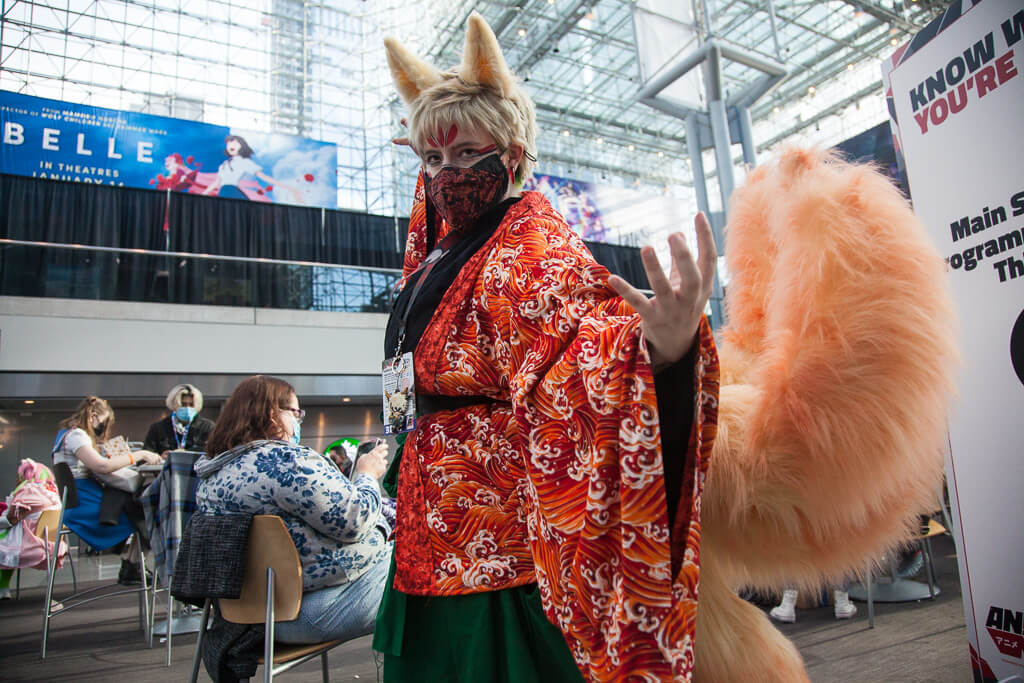
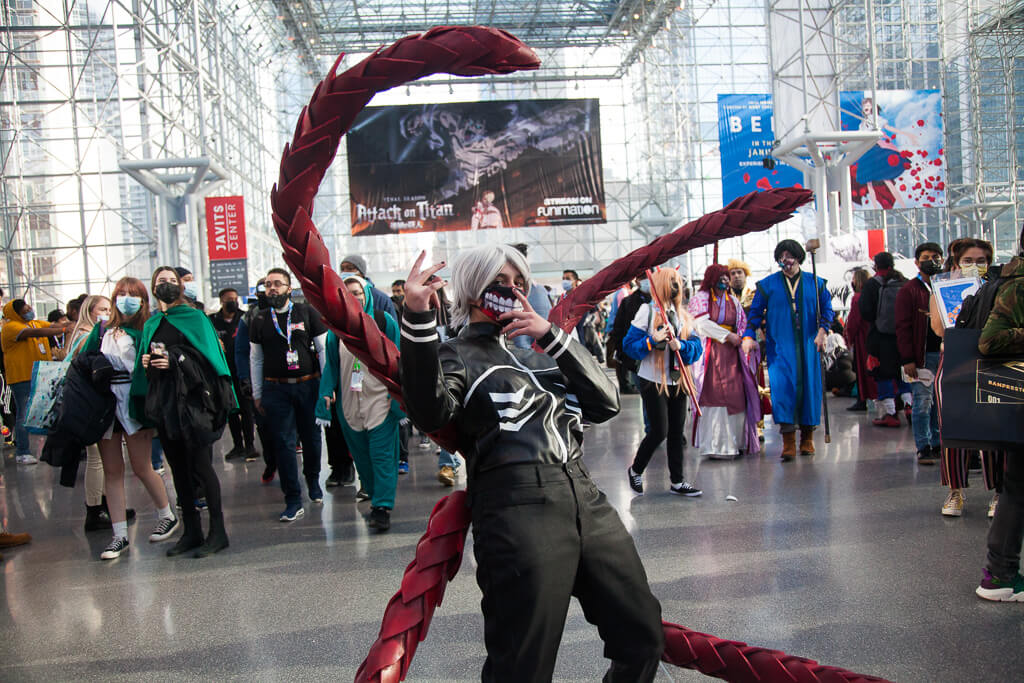
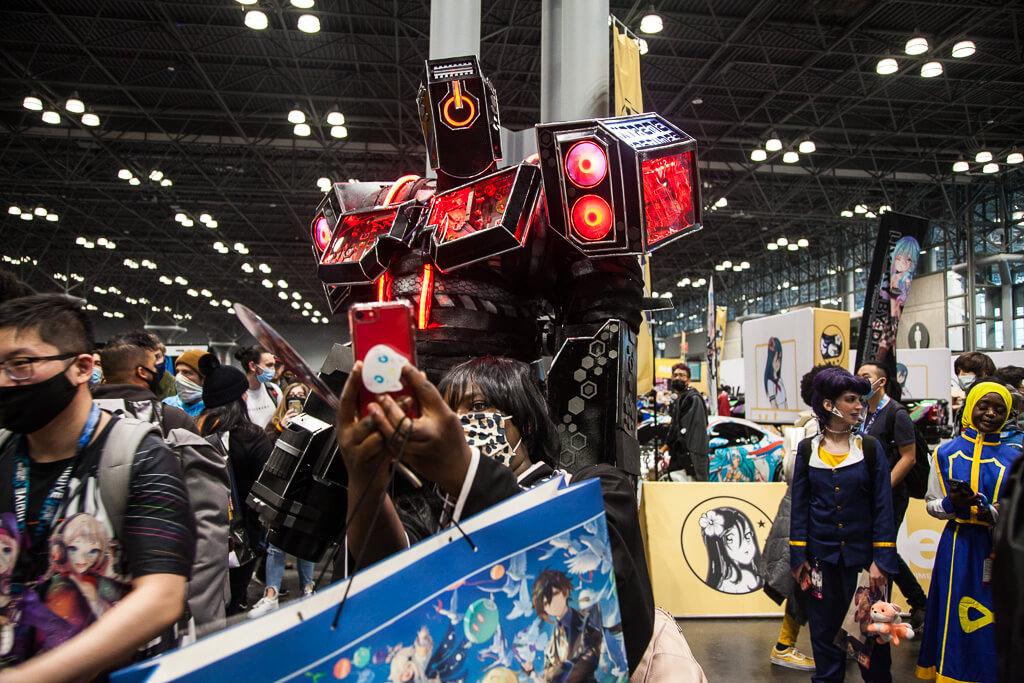
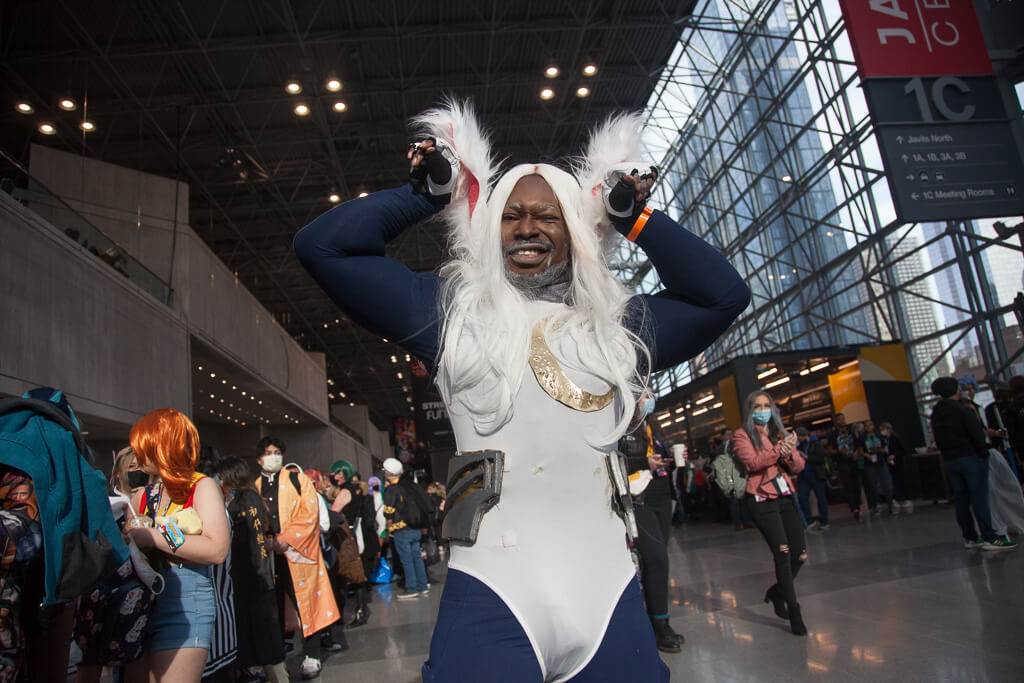
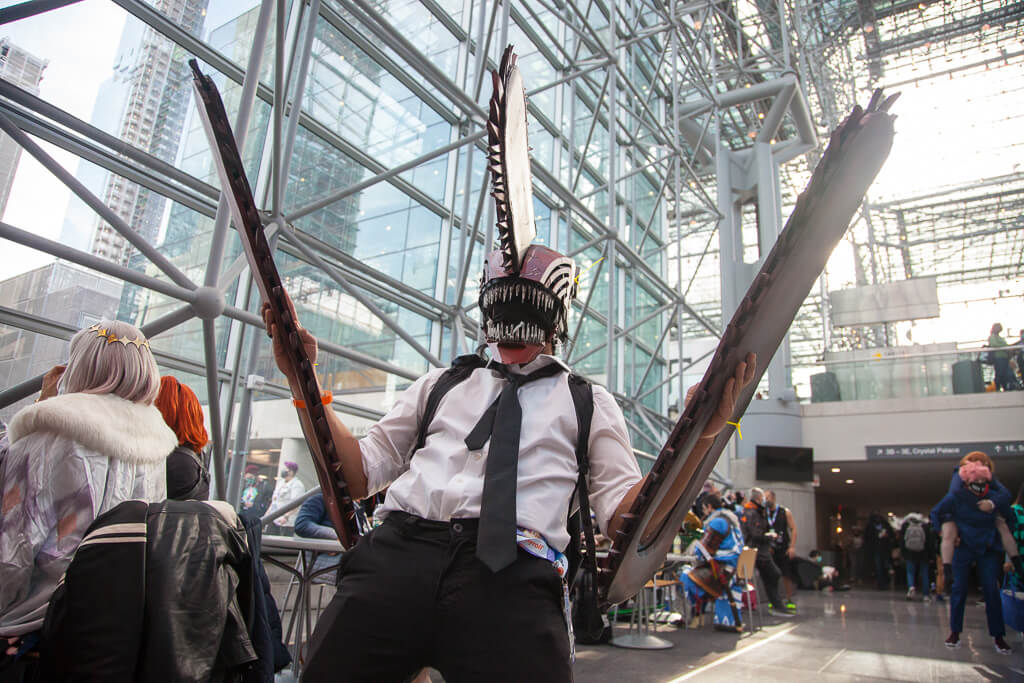
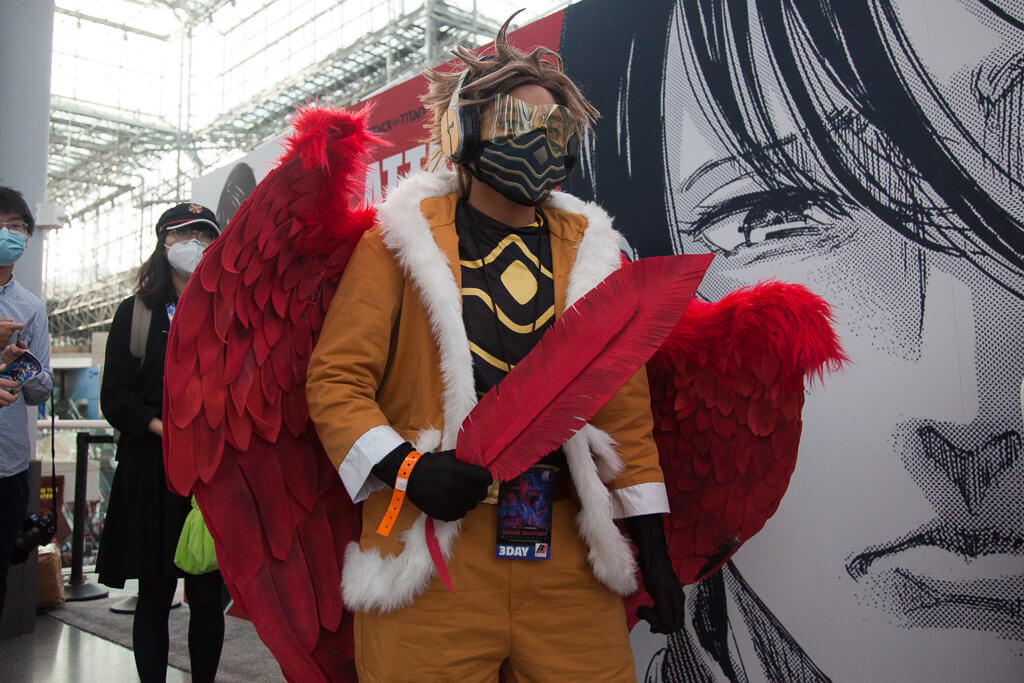
Beyond being the first in-person anime gathering of its size in New York since the pandemic, the convention gave fans an inside look at the industry, with presentations that included panels with famous voice actors, previews of new series and insider conversations about the future of the business.
Importantly it also attracted hundreds of artist booths to the exhibition floor, which sold original anime prints, toys, plush dolls keychains and even some suggestive video game fan art that sold out within two hours of opening.
Anime is currently reaching new global heights in popularity, said Justin Leach, an American animator and the CEO of Qubic productions, a new independent anime production company and a sponsor of the convention.
“There are companies like Netflix, Disney + and HBOMax — they’re all starting to invest in these projects, so I think there’s going to be more opportunities for creators,” said Leach, adding that most of Japan’s anime’s studios are booked up with prospective projects for years to come.
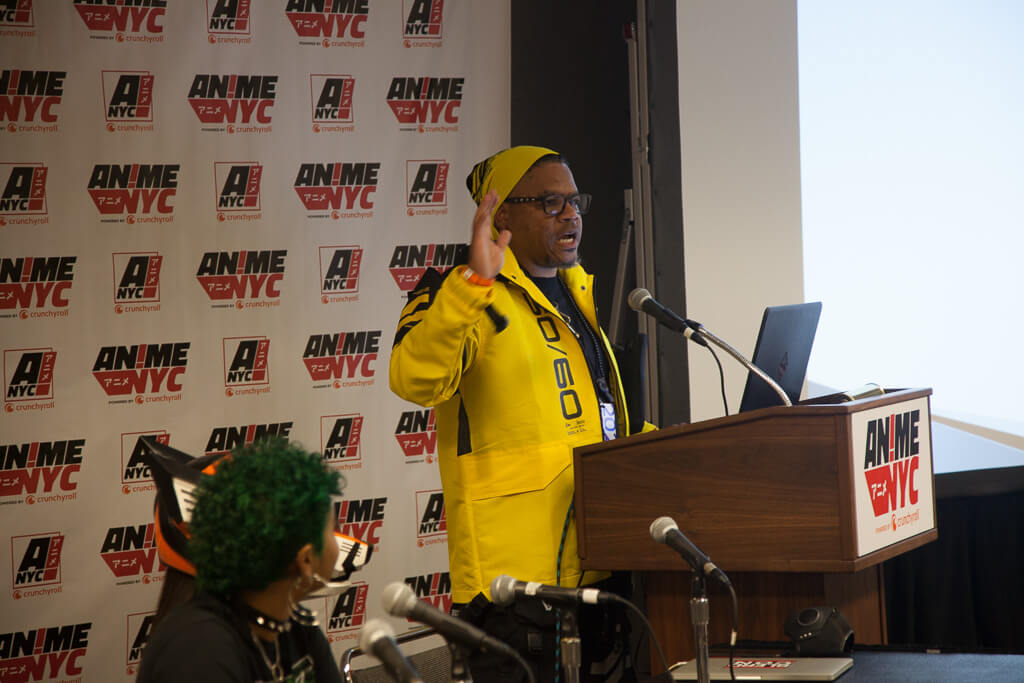
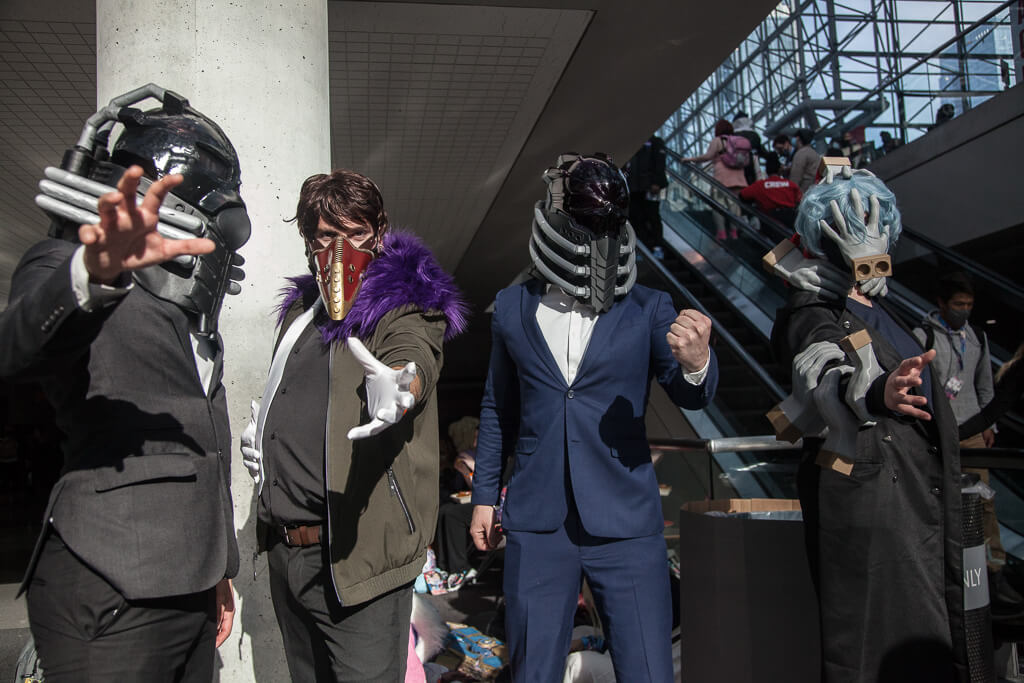
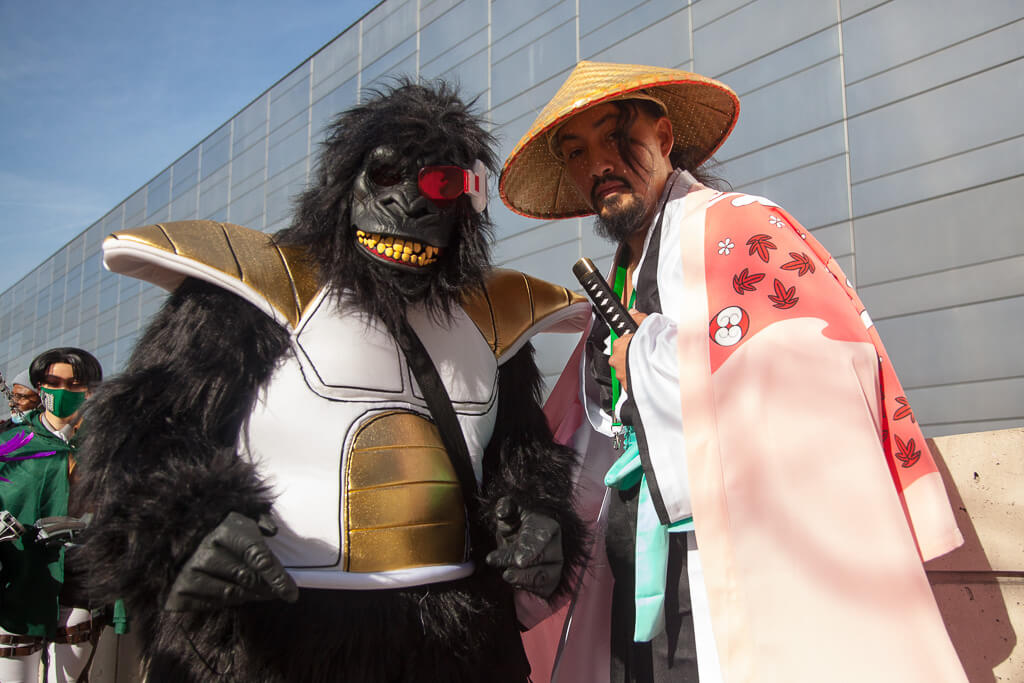
Leach, who had worked in an out of Japanese animation since the late 1990s, told an audience a story of how he was able to start a production company designed to launch independent anime projects by collaborating with veteran Japanese animators that he met during his stints working on animes like “Ghost in the Shell 2: Innocence.”
The companies represented at the convention ranged in size from scrappy newcomers like Leach’s to Crunchyroll, the genre’s streaming giant and banner sponsor of the convention.
Crunchyroll’s recent acquisition by Sony for nearly $1.2 billion is an indication that corporate players have recognized anime as an important asset in the streaming wars.
In a state-of-the-company presentation, Crunchyroll announced a few new shows like Shenmue, a martial arts series based on an early 2000s cult video game; and Teen Freaks, the story of a young group of heroes with psychic powers in the apocalyptic future, after it detailed its global business standing with 5 million plus subscribers and 120 million registered users in over 200 countries.
But the popularization of anime hasn’t just given opportunities to the big guys.
Grave Weaver, one of hundreds of independent artists hawking prints at a booth on the exhibition floor, said that she was happy to return to the con circuit to sell her wares.
“This is like the first wind of [cons] that are coming open again. I came here just to meet the fans and so far it’s been great,” said Weaver, who flew out from her home in California.
Weaver pens a gothic anime webcomic called “I’m the Grim Reaper,” which got picked up by a platform called Web Tune that aggregates anime cartoons. Working as a solo content creator, she churns out a new story each week to be displayed on the platform, and in return she gets paid based on a revenue share model based on the amount of paid subscribers.
“Once you’re on Web Tune original, it’s very easy to gain a following,” said Weaver, whose following has catapulted to 1.5 million subscribers over the pandemic.



